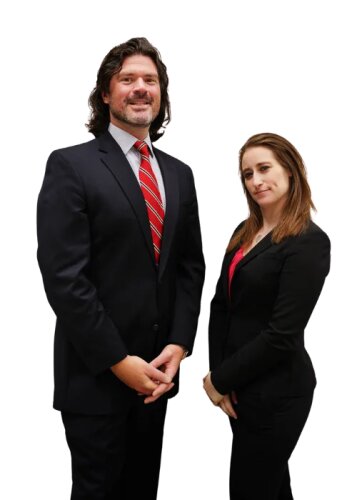Best Collaborative Law Lawyers in New York City
Share your needs with us, get contacted by law firms.
Free. Takes 2 min.
Free Guide to Hiring a Family Lawyer
List of the best lawyers in New York City, United States
About Collaborative Law Law in New York City, United States
Collaborative Law is a voluntary dispute resolution process used in family law matters. In New York City, it most often involves divorces, child custody, parenting time, and property division handled through cooperative negotiation rather than courtroom litigation. Each party retains a collaborative attorney and may use a neutral team member such as a financial professional or mental health professional. The goal is to craft a durable settlement that respects both sides' interests while preserving privacy and reducing conflict.
Why You May Need a Lawyer
- High-asset divorce in Manhattan with real estate, business interest, and complex tax issues. A collaborative attorney coordinates asset valuation, tax planning, and equitable distribution with a team of professionals who understand New York real estate and business law.
- Custody and relocation planning in Brooklyn where a parent may need a revised parenting schedule due to work, schooling, or care access. A lawyer helps you draft a custody plan that aligns with New York standards and protects the child’s best interests.
- Business owner divorce in Queens requiring ongoing company operations while separating finances. An attorney coordinates business valuation, buy-out mechanics, and successor arrangements to avoid disruptive court action.
- Privacy concerns in a high-profile NYC matter where parties want to limit exposure of sensitive information. A collaborative approach emphasizes confidentiality and controlled disclosures, reducing public exposure.
- Prenuptial or postnuptial agreement updates in the NYC area. A lawyer ensures the agreement complies with New York law and reflects current financial realities while remaining enforceable.
- History of high conflict or communication barriers between spouses. A collaborative team can include neutral problem solvers and mental health professionals to facilitate constructive negotiation and prevent escalation to litigation.
Local Laws Overview
Uniform Collaborative Law Act status in New York
As of 2024, New York has not enacted the Uniform Collaborative Law Act (UCLA). The Uniform Law Commission tracks which states adopt UCLA and New York remains non-adopted. This means New York relies on general contract principles and existing family law rules rather than a codified UCLA regime.
The Uniform Collaborative Law Act status for New York: not enacted as of 2024.
Domestic Relations Law and Family Court Act
New York's Domestic Relations Law (DRL) governs divorce actions, spousal support, and property division in many cases. The Family Court Act (FCA) governs child custody, support, and visitation for matters filed in Family Court or the Supreme Court. Collaborative settlements in New York must fit within this statutory framework even when disputes are resolved without formal litigation.
For reference, see the Uniform Law Commission and New York Court resources on how family law interacts with collaborative processes. The New York Courts site provides guidance on family law procedures and available dispute resolution options.
Uniform Collaborative Law Act status and related commentary.
New York Courts provides official information on family law proceedings, mediation, and related processes.
Civil Practice Law and Rules (CPLR) and Enforcement
The Civil Practice Law and Rules (CPLR) govern civil actions and pre-trial procedures in New York, including divorce and related relief. While collaborative law aims to avoid litigation, parties may need CPLR-based mechanisms to enforce a settlement if necessary. Attorneys in New York City should draft a comprehensive settlement that aligns with DRL and FCA requirements and can be enforceable in court if needed.
In practice, a well drafted collaborative agreement often includes provisions that allow for enforcement through post-agreement court approval or transformation into a conventional consent order if litigation becomes unavoidable.
New York Courts guidance on civil actions and settlement enforcement is a useful companion resource.
Frequently Asked Questions
What is collaborative law in New York City?
Collaborative law is a voluntary process where spouses and their lawyers work together to resolve issues without going to court. A team may include a financial professional and a mental health professional to support negotiation. Agreements are reached by mutual consent and are documented in a settlement that is enforceable under New York law.
How do I start a collaborative divorce in NYC?
Begin by contacting a NYC based collaborative attorney. Each side signs a participation agreement promising to resolve disputes cooperatively and to withdraw from litigation. A team is formed, an agenda is set, and the parties start structured, confidential negotiations.
How much does collaborative law cost in New York City?
Costs vary by complexity and team composition. Typical expenses include attorney fees, a potential neutral financial professional, and possibly a mental health professional for coaching. Compared with traditional litigation, upfront costs can be lower if the process resolves quickly, but expenses rise with the need for additional professionals.
How long does the collaborative process take in NYC?
Typical timelines range from three to nine months depending on asset complexity, custody issues, and responsiveness. In straightforward cases, most settlements occur within a few months; complex cases involving business valuations may take longer.
Do I need to hire a lawyer for collaborative law in NYC?
Yes. Each party should have a trained collaborative attorney. Lawyers guide negotiation, ensure legal compliance, and help prepare a binding settlement that meets New York requirements.
Is collaborative law legally enforceable in New York?
Yes, through a settlement agreement that conforms to New York Civil Practice and Family Court rules. If necessary, the agreement can be converted into a court order or incorporated into a judgment by the court.
What is a collaborative team in New York City?
A collaborative team often includes two lawyers plus optional neutral professionals such as a financial analyst and a mental health coach. The team helps with asset valuation, tax planning, and parenting plan design while maintaining client confidentiality.
Can collaborative law work if my spouse refuses to participate?
Collaborative law requires voluntary participation from both sides. If one party refuses, traditional negotiation, mediation, or litigation may be the next steps. A lawyer can explain options and help decide the best path forward.
What is the difference between collaborative law and mediation?
In collaboration, each party has a separate attorney and a formal participation agreement governs conduct and non-litigation commitments. In mediation, a neutral mediator assists both sides without each side having independent trial counsel; lawyers are not mandatory for mediation.
Should I hire a NYC based attorney for collaborative law?
Yes. Local experience with New York family law, local court rules, and regional business and tax considerations is important. A NYC based attorney can coordinate with local accountants and evaluators as needed.
Do I need to sign a participation agreement to start?
Yes. A signed participation agreement commits both parties to a cooperative process and to disclose information in good faith. It also helps manage expectations and clarify the scope of the collaborative effort.
Additional Resources
- New York City Bar Association - Provides guidance, ethics considerations, and resources on collaborative practice in New York.
- Uniform Law Commission - Information about the Uniform Collaborative Law Act and its status across states.
- New York Courts - Official information on family law, dispute resolution options, and court procedures.
Next Steps
- Assess your goals and determine if collaborative law fits your situation based on complexity and desired privacy. Set a rough timeline for decision making within 1-2 weeks.
- Gather key documents such as financial statements, tax returns, real estate records, and debt information. Create a checklist and start collecting materials within 1-2 weeks.
- Identify a shortlist of NYC based collaborative attorneys and contact them for initial consultations. Plan to schedule 30-60 minute meetings within 2-4 weeks.
- Ask each attorney about their team structure, costs, and the process for selecting a neutral financial professional or mental health coach. Request a written engagement outline with estimated fees.
- Compare proposals, focusing on experience with New York family law, asset valuation, tax planning, and parenting plan design. Allow 1-2 weeks for decision making after consultations.
- Choose your collaborative attorney and sign a participation agreement. Coordinate with the other side to sign as well, typically within 1-3 weeks after final proposals.
- Begin the collaborative process with a kickoff meeting, establishing ground rules, timelines, and next steps. Expect ongoing meetings over the next 3-9 months depending on complexity and cooperation.
Lawzana helps you find the best lawyers and law firms in New York City through a curated and pre-screened list of qualified legal professionals. Our platform offers rankings and detailed profiles of attorneys and law firms, allowing you to compare based on practice areas, including Collaborative Law, experience, and client feedback.
Each profile includes a description of the firm's areas of practice, client reviews, team members and partners, year of establishment, spoken languages, office locations, contact information, social media presence, and any published articles or resources. Most firms on our platform speak English and are experienced in both local and international legal matters.
Get a quote from top-rated law firms in New York City, United States — quickly, securely, and without unnecessary hassle.
Disclaimer:
The information provided on this page is for general informational purposes only and does not constitute legal advice. While we strive to ensure the accuracy and relevance of the content, legal information may change over time, and interpretations of the law can vary. You should always consult with a qualified legal professional for advice specific to your situation.
We disclaim all liability for actions taken or not taken based on the content of this page. If you believe any information is incorrect or outdated, please contact us, and we will review and update it where appropriate.
















